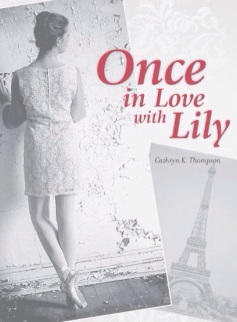 What do you do when your plans of hiking and enjoying the natural beauty of Hocking Hills are rained out? Easy. You visit the local winery, grab a pizza at a nearby restaurant, then find a cozy spot in front of the fire and catch up on all the things you’ve been wanting to do since school started last fall. You nap, you read a good book (The Rumor by Elin Hilderbrand) and you finally get back to writing, or at least editing the messy draft you abandoned back in August.
What do you do when your plans of hiking and enjoying the natural beauty of Hocking Hills are rained out? Easy. You visit the local winery, grab a pizza at a nearby restaurant, then find a cozy spot in front of the fire and catch up on all the things you’ve been wanting to do since school started last fall. You nap, you read a good book (The Rumor by Elin Hilderbrand) and you finally get back to writing, or at least editing the messy draft you abandoned back in August.

Of course, that last part, while a productive use of time, was not exactly what I’d call relaxing. I’m going to let you in on a little secret. Part of the reason I’ve let the draft go for so long is that I don’t know what I’m doing. That’s not to say that I don’t know how to write. I’ve learned a lot about writing in the last few years. I just don’t know how to write the third part of the Lily Trilogy because the story is going to take an unexpected turn and may end up in a different genre all together. This book is going to force me to grow as a writer, but it is also going to be a challenge. There will still be love, friendship, and romance, but where it ends up may be a bit of a mystery or even create a few legal problems.
But wait… there’s more. Not only am I not sure how to write the story I want to write, it seems the part of the story I have already written may not be the one readers want to read. I’ve only shared the first draft with one person so far. She is one of my dearest, yet most brutally honest friends. She’s been my confidant, biggest cheerleader, and most cherished advisor with both of the first two books. I trust her completely. But right now, she and I are at odds as to how Lily should react to the events in the story. Adopting her point of view could mean cutting tens of thousands of words and reworking much of the current plot. Sticking to my guns might mean that readers are turned off by a main character who is more selfish and abrasive rather than flawed and confused as I intended. It’s my story, but because of that, I may be too close to it to see the issues. Then again, it’s my story. Because of that, I may know the characters better than she. What’s the right answer? Can I find a happy medium? Will I have to cut those scenes I once felt were pure genius in order to make it fit for public consumption? Only time will tell.
There is still one more problem I haven’t discussed yet. I have often heard that when you finish a draft of a manuscript, you should put it in a drawer and leave it alone for a while. The idea is that you will then be able to detach yourself from it and edit it with a more objective mind. You will be better able to “murder your darlings”, as they say, and cut those scenes or pieces that you are so emotionally attached to. The trouble is, when you leave it for as long as I did, you have to read the whole thing over with in order to remember all of the details even though you’re the one who wrote it in the first place. In other words, the editing process has begun again, but it may take a while before version 2.0 is ready to roll out.
So, what was the point of this post other than to inform you that my vacation was rained out? Maybe I just needed to vent. Very possible. But that’s not all. I also wanted to share my journey. I’m not Nora Roberts or Mary Kay Andrews. I don’t knock out several books a year. But I am proof that with hard-work and perseverance anything is possible. If you are an aspiring writer, don’t expect to publish your first draft. Write, re-write, edit. Lather, rinse, and repeat. And with any luck, the final product will be worth the work and wait.
I’m looking forward to sharing the third and final part to Lily’s and Tony’s story. Eventually. I’m not sure how I will feel when it’s all over. I suspect I will miss Lily and Tony. I may even grieve their loss. As silly as it may sound, they have been a part of my life for so long now, that they feel more like old friends than just characters in a book. Maybe subconsciously that’s another reason I’ve been putting off finishing the story. But it’s time. Time to roll up my proverbial sleeves and get to work. I left readers wondering about the mysterious phone call on the last page of book two. We all need closure and another chance at happily ever after. As Tony said, “Once in Love with Lily… Always in Love with Lily.” Time to decide what happens with Forever, Lily.



